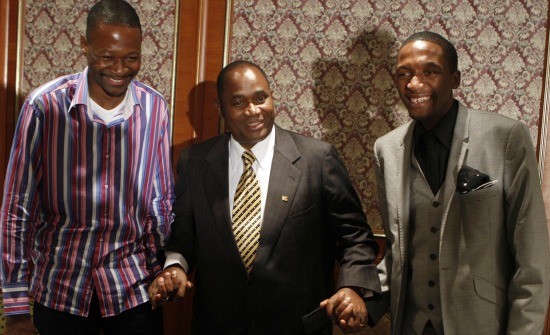HARARE – Zimbabwe’s cash-strapped government, which has failed to come up with a budget has now become desperate and is moving in to tax churches and non-governmental organisations, the Daily News has been told.

With millions of people turning to Christianity in the last few years, government is said to be looking at ways to make churches prime targets for taxation.
The Daily News was yesterday told that so bad is the cash situation in government that Zimbabwe Revenue Authority (Zimra) officials were yesterday visiting churches making inquiries about their sources of income and seeking information on people who make donations.
Zimbabwe’s tax agency plans to visit all local churches and non-governmental organisations as part of an investigation into tax evasion.
At the time of going to press yesterday, Taungana Ndoro, the Zimra chief of corporate communications had not responded to questions sent to his office on the planned crackdown on churches.
But officials said Pentecostal churches, who draw huge crowds to their congregations every week, were prime targets of the raids by customs agents seeking to collect money from the churches which operate as charity organisations.
Government obligations and deficits have continued to escalate, pushing the Zanu PF government into desperate measures.
President Robert Mugabe’s administration has responded to the economic crisis, characterised by an enormous burden on the State’s already strained budget, by targeting churches for a shakedown.
The move could significantly hike churches’ tax liabilities amid accusations by the tax collector that churches were funnelling funds abroad.
Since elections on July 31, Mugabe’s government has cracked down on capital flight and tax evasion in a bid to shore up government finances.
The crackdown on churches could have been torched by Tourism minister Walter Mzembi who recently suggested that churches should be taxed but he appeared to backtrack on the issue suggesting that he could have been misquoted.
Zimbabwe has missed the third-quarter budget revenue targets as economic growth cooled down, with mineral royalties tumbling, underlining the formidable task government faces to shore up the economy.
Mining royalties — one of Zimbabwe’s key revenue heads — took a knock in the quarter to September 2013, slumping 39 percent to $39 million due to depreciating international mineral prices.
During the period under review, tax collector Zimra targeted to collect $63,7 million in mining royalties. Given the intensifying budget difficulty, government is hell-bent on moving in on churches for taxation, top government officials said.
Zimbabwe’s Income Tax legislation exempts from taxation, ecclesiastical institutions of a public character and this covers the receipts and accruals of religious organisations.
But like all employers, religious organisations are required to register with Zimra as an employer and Pay As You Earn (PAYE) should be withheld from remuneration accruing to employees.
The remuneration includes the pastor’s stipend and other benefits like housing and motoring benefits. The crackdown will target records in respect of remuneration, with churches risking liability for payment of the outstanding PAYE, penalties and interest.
More importantly, government will be targeting buildings leased by religious organisations.
The law says where rental income is received from a lessee who is an informal trader in respect of residential accommodation, premises or a place on which trade is carried on, the organisation is required to withhold an Informal Traders’ Presumptive Tax equal to 10 percent of the rental.
This withheld amount should be remitted to the Zimra within 30 days from the date of such withholding. Failure to recover or remit the Presumptive Tax renders the church itself liable for the payment of the outstanding Presumptive Tax, interest and penalties.
Government will also be targeting religious organisations which enter into contracts for the supply of goods or services resulting in an obligation to pay amounts totalling $250 or more.
At least 10 percent of the total invoice value should be deducted and remitted to Zimra, unless the payee furnishes a valid tax clearance certificate confirming that their tax position is satisfactory.
The tax man will also be closely looking at rebate of duty on goods imported for religious purposes. The dragnet will also look at the importation of second-hand or used motor vehicles for churches.
The Evangelical Fellowship of Zimbabwe has said its members will comply with the proposal to tax profit-making activities by churches.
EFZ’s general secretary, Reverend Lindani Dube, said while churches were ready to comply with the government’s proposals, it should not be forgotten that income-generating activities by churches helped the institutions sustain themselves.
“As law-abiding citizens, I think it would be good practice to comply with progressive business regulations in the country, particularly in clearly defined spheres such as profit-making ventures. Consideration, however, should be made considering that churches are spiritual and social institutions that give to their communities,” he said. Daily News





